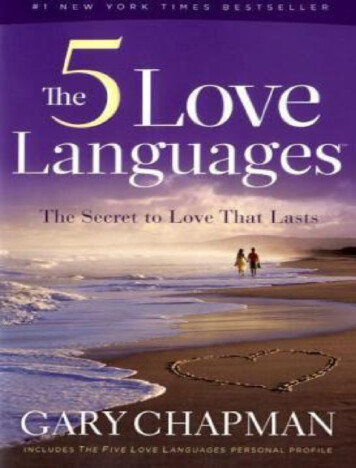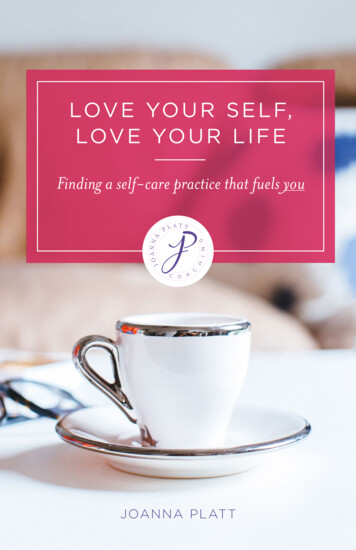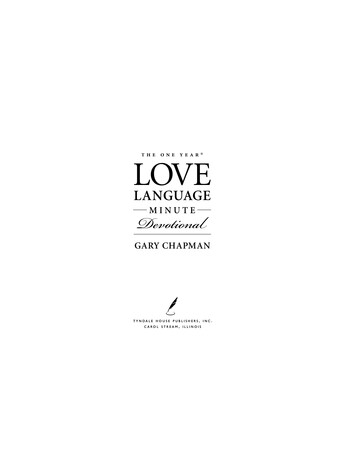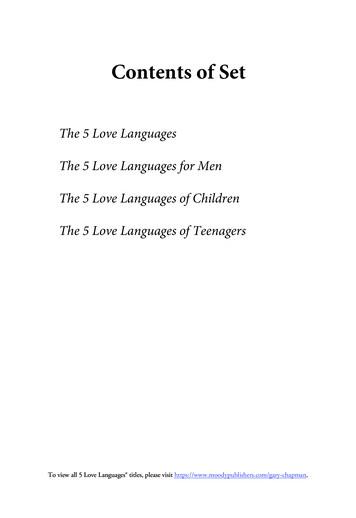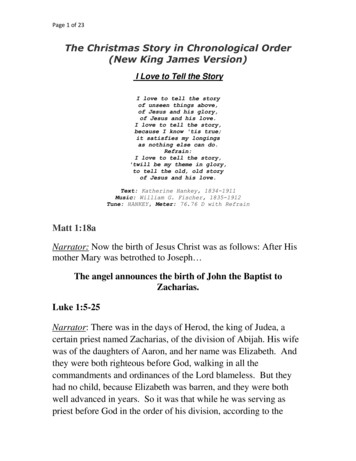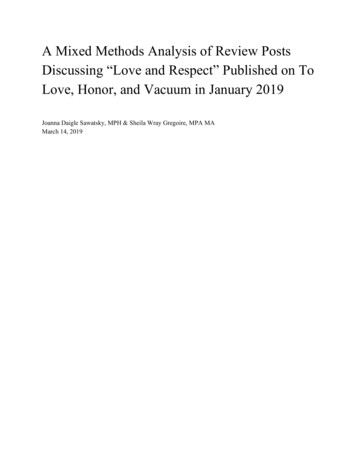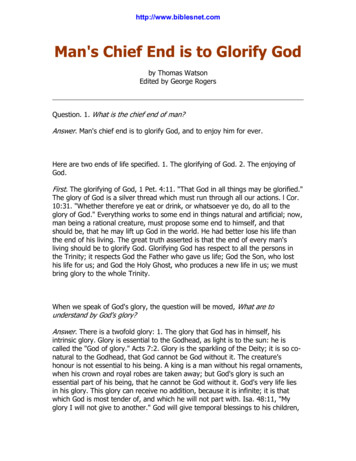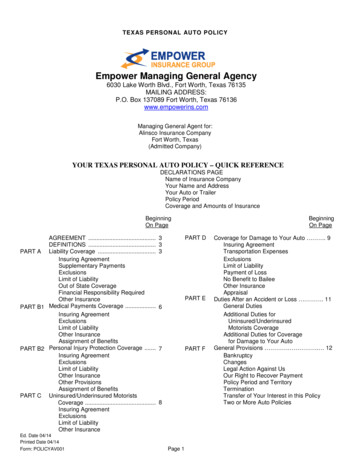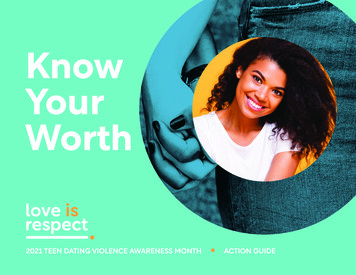
Transcription
KnowYourWorth2021 TEEN DATING VIOLENCE AWARENESS MONTHlACTION GUIDE
Welcome to Teen Dating ViolenceAwareness Month (TDVAM)What is TDVAM?TDVAM is a month-long campaign dedicated to raising awareness about teen dating abuse.Every February, young people and their loved ones join together across the country for anational effort to raise awareness about the issue of teen dating violence throughTeen Dating Violence Awareness Month (TDVAM). Congress declared the monthof February to be National Teen Dating Violence Awareness and PreventionMonth in 2010. This annual, month-long push focuses on advocacy andeducation to stop dating abuse before it starts.2021 Theme“Know Your Worth”Why we chose this themeThis year’s theme Know Your Worth is all about learning about healthyrelationships and self-empowerment, and was chosen by college studentsfrom across the country. You are worth respect and deserving of a healthy,loving relationship. Our idea with this theme is to empower our audience tolearn more about healthy relationships, and to know what they are worth andwhat they deserve. It is a very powerful, personal statement that guides actions,behaviors, and communication in relationships to be healthy and free fromviolence. Everyone is deserving of a healthy relationship!1KNOW YOUR WORTH
What you should knowabout dating abuseThe problemTeen dating violence is more common than many people think. 1 in 3 teens in the U.S. will experience physical, sexual,or emotional abuse by someone they are in a relationship with before they become adults. Nearly half (43%) of thosewho identify as college women report experiencing violent and abusive dating behaviors. Everyone has the right to asafe and healthy relationship. Dating abuse can happen to anyone, regardless of their age, financial status, race, gender, sexual orientation, or background. With 1 in 3 teens experiencing some form of relationship abuse, and two thirdswho never tell anyone, we have to do more to bring awareness to dating violence.The solutionWe have to start talking! By understanding the essential elements of healthy relationships and learning the earlywarning signs of harmful and abusive behaviors — we can change things for ourselves and those we care about. Thefirst step is to get the right information about healthy relationships and abuse in front of young people.Building communities of supportThis isn’t a private issue. We must come together to support those affected byunhealthy relationships and abuse. Isolation is one of the strongest tactics someoneuses in exerting power and control over someone else — we must let people knowthey are not alone. By having each other’s backs, we build a community of supportand bravely demonstrate that not only do we know our own worth, but also ourcollective worth.TEEN DATING VIOLENCE AWARENESS MONTH2
TakeactionLearn what’s essential in a healthy relationshipWhile no two relationships look the same and different people may define relationships indifferent ways, there are a few key things that must be present in all relationships for it to be onlBoundarieslConsentLearn the warning signs of abuseRelationships exist on a spectrum and it can sometimes be hard to tell when abehavior goes from healthy to unhealthy or even abusive. Typical warnings signs include:l Checking your phone, email, or social media accounts without your permission.l Putting you down frequently, especially in front of others.l Isolating you from friends or family (physically, financially, or emotionally).l Extreme jealousy or insecurity.l Explosive outbursts, temper, or mood swings.l Any form of physical harm.l Possessiveness or controlling behavior.l Pressuring you or forcing you to have sex.Take social media actionEvery day is an important day to spread awareness about teen dating violence, but during TDVAM, it’s especially important to add your voice.Follow love is respect and like, comment and share our content. Share your own thoughts using #KnowYourWorth. Let your network knowthat you are participating in TDVAM, and invite them to do the tofficialHave a courageous conversationWhether on campus, online, at home, at work or hanging out, if you see something concerning or notice changes in someone close to you (like nolonger posting, absent from class or not texting their friends anymore) — ask questions. Let them know you are a safe space to share their experiencewithout any judgment. It’s okay to ease into it — try asking, “Hey, I have noticed you’ve not been on social media or texting as much, is everything okay?”3KNOW YOUR WORTH
How your parents andteachers can take actionUnderstand this is seriousSometimes, okay maybe most of the time, it’s hard for the adults in our life to relate. However, young people still say parents and teachers arean incredibly important source of support and influence their decisions and choices. If your parent, teacher, or coach suspect that you’re in anunhealthy relationship it can be frustrating and frightening for them too. As an adult, their instinct is to help you in whatever way they can, butthey just aren’t sure how. Here are some tips to share with the adults in your life (we put it in adult speak just for them):Learn the warning signs of abuseLearn resources available to helpThere are so many great resources, but here are a few, not to mention the very importantLGBTQ and BIPOC resources listed on page 6.lllllove is respect has a lot of resources and learning materials for young peopleand adults, as well as live digital chat. Or, 24/7 you can call 1-866-331-9474 or textLOVEIS to 22522! Parents can even call, chat or text themselves tounderstand what someone may be going through and learn how to help.Crisis Text Line, text HOME to 741741 and get support with a variety of issuesincluding abuse, depression and thoughts of suicide.RAINN is a 24/7 sexual assault hotline providing victim services for survivorsof sexual assault. Call 800-656-HOPE or live chat at rainn.orgRunaway Safeline is here for young people thinking about running away or whoalready have. They can help teens get to safety or back home too. Call 1-800-786-2929or live chat at www.1800runaway.org.How to have a courageous conversationListen & give support. It can be difficult to open up about abuse, and young people may fearthat important adults in their lives will overreact, blame them, or be angry. Adults need to be supportive and non-accusatory and be sure toask how someone wants to be supported and how you can help, instead of jumping to conclusions and suggestions. Showing skepticism ordisbelief can make anyone feel unsupported and isolated. Believe someone when they are brave enough to share their experience with you.You may be the first person they have ever told.TEEN DATING VIOLENCE AWARENESS MONTH4
Digital abuseis realDigital abuse overviewAll communication in a healthy relationship is respectful, whether in person,online, or over the phone. It’s never okay for your partner to use words or actionsto harm you, lower your self-esteem, or manipulate you. Digital dating abuse isthe use of technologies like texting and social media to bully, harass, stalk, orintimidate a partner. You never deserve to be mistreated, online or in person.COVID-19 and its impactSo much has changed with this pandemic, and it’s been rough for so manypeople and especially young people. Many of us find ourselves away from campus, school or work, attending classes online and isolated from our family andfriends. COVID-19 puts people at higher risk for abuse, especially digital abuse,because nearly everything we do is online. Any external factors that add stress,isolation, and financial strain can create circumstances where safety is furthercompromised. COVID-19 is a combination of all three and is being used byabusive partners to further control and abuse. This makes it even more importantfor us to connect with and support those who might be experiencing abuse.5KNOW YOUR WORTH
YourcommunityLGBTQ Specific SupportlLGBT National Help Center— serving the LGBTQ Community by providing free andconfidential peer support and local resources. Call 1-800-246-7743 or chat atwww.glbthotline.orglBrown Boi Project— is a community of people working across race and gender toeradicate sexism, homophobia and transphobia and create healthy framework ofmasculinity and change. www.brownboiproject.orglScarleteen— inclusive, comprehensive, supportive reproductive and relationshipsinfo for teens. www.scarleteen.comlThe Trevor Project— provides 24/7 confidential crisis intervention and suicideprevention services to LGBTQ young people under 25. Call: 1-866-488-7386 ortext START to 678-678 or chat live at www.thetrevorproject.orgBlack, Indigenous and Communities of Color Specific SupportlHeart— ensures that Muslims have the resources, language, and choice to nurturesexual health and confront sexual violence. www.hearttogrow.orglStrongHearts— free, confidential, and culturally-relevant support for NativeAmerican and Alaska Native teens and young adults experiencing dating abuse andsexual violence is available every day from 7 a.m. to 10 p.m. CST.Call: 844.7NATIVE (762.8483) or chat live at www.strongheartshelpline.orgTEEN DATING VIOLENCE AWARENESS MONTH6
love is respectis here for youMissionlove is respect is an initiative that engages, educates, and empowersyoung people to prevent and end abusive relationships. love is respectwas established in 2007 by the National Domestic Violence Hotline inresponse to a national discourse about the need for prevention services,especially among teens.love is respect is a safe, inclusive space where teens and young adults can accessinformation and get support in an environment designed specifically for them.To Learn MoreAll of our resources, including live-advocate support, are free, confidential and 24/7/3651.866.331.9474loveisrespect.orgLOVEIS to 22522This project was supported by Grant Number 90EV0459 from the Administration on Children, Youth and Families, Family and Youth ServicesBureau, U.S. Department of Health and Human Services. The opinions, findings, conclusions and recommendations expressed in thispublication are those of the author(s) and do not necessarily reflect the views of the Administration on Children, Youth and Families, Familyand Youth Services Bureau, U.S. Department of Health and Human Services.
love is respect is a safe, inclusive space where teens and young adults can access information and get support in an environment designed specifically for them. To Learn More All of our resources, including live-advocate support, are free, confidential and 24/7/365 love is respect is here
